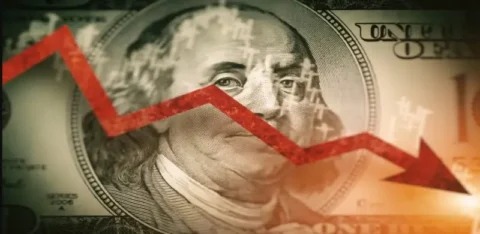Contents
The German manufacturing sector faced a substantial setback in July, erasing the unexpected surge recorded in June. The latest data highlights a pervasive decline in demand across various economic segments.
June’s Upturn and July’s Downturn
German factory orders took center stage this morning. Following the surprising 7.6% upswing in factory orders in June, the prevailing weak demand a sharp downturn in July.
In stark contrast to economists’ forecasts of a 4% decline, factory orders plummeted by 11.7% in July. According to Destatis:
- Orders for the production of other transport equipment nosedived by 54.5% (compared to June’s +72.4%).
- Orders for the manufacture of computer, electronic, and optical products saw a decline of 23.6%.
- Substantial declines were also observed in orders for machinery (-8.7%), electrical equipment (-16.7%), and fabricated metal products. This excludes machinery and equipment (-14.2%).
- Orders related to the manufacture of motor vehicles, trailers, and semi-trailers, however, increased by 2.7%.
- Foreign orders witnessed a drop of 12.9%, while orders from the euro area slumped by 24.4%.
- Orders from the rest of the world also fell by 4.1%, and domestic orders were down by 9.7%.
International Factors on German Factory Orders
The latest figures from Germany reinforce growing concerns about the possibility of an economic recession in the country. While expectations of a September interest rate hike by the ECB have diminished, ECB President Lagarde continues to express worries.
The simultaneous decline in the service and manufacturing sectors, coupled with the decrease in factory orders. This might lead ECB hawks to reconsider their stance on rate hikes. Higher ECB interest rates would result in increased borrowing costs, impacting companies’ profit margins, investments, and hiring plans.
EUR/USD Reaction to German Factory Orders
Before the release of the factory order report, the EUR/USD dipped to a pre-report low of $1.07131. Later it recovered to reach a high of $1.07386.
However, in response to the disappointing German factory orders data, the EUR/USD dropped from $1.07380 to $1.07275.
As of this morning, the EUR/USD is up 0.08% at $1.07307.
Up Next
Later today, Eurozone retail sales will be closely monitored. Economists anticipate a 0.1% decline in retail sales. A continued downtrend in retail sales would alleviate demand-driven inflation pressures and reduce pressure on the ECB to raise interest rates.
Given the prevailing inflation and interest rate dynamics, a weaker labor market could lead to reduced consumer spending, impacting overall consumption.
Following the recent economic indicators from the euro area, we expect that ECB commentary will also have an influence on ECB policy expectations. ECB Executive Board Member Elizabeth McCaul is scheduled to speak today.
The Final Word: US ISM Non-Manufacturing PMI
The US ISM Non-Manufacturing PMI, a critical indicator for market sentiment, will follow PMIs from China and the euro area. A significant slowdown in the US German Factory Orders sector, which constitutes over 70% of the economy, could unsettle markets. Economists predict the PMI to decrease from 52.7 to 52.5 in August.
While other statistics such as the finalized S&P Global service and composite PMIs, as well as trade data, hold relevance, the ISM Non-Manufacturing PMI is expected to take precedence.








